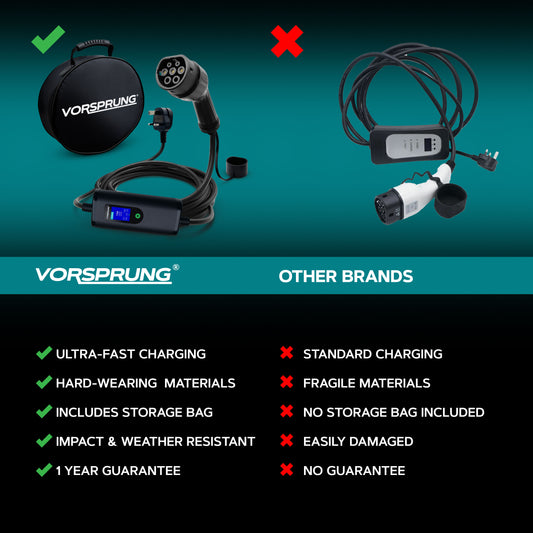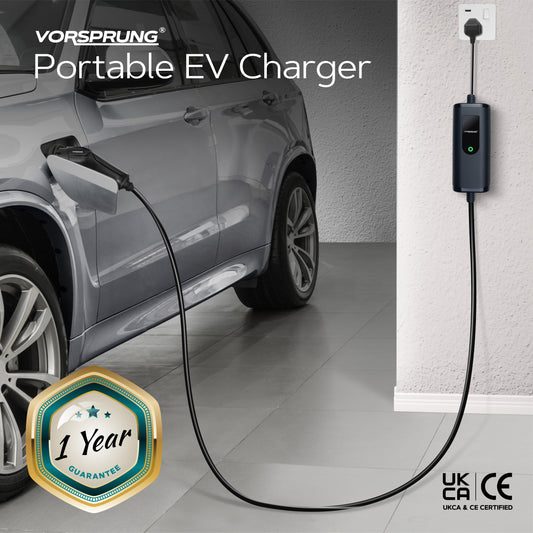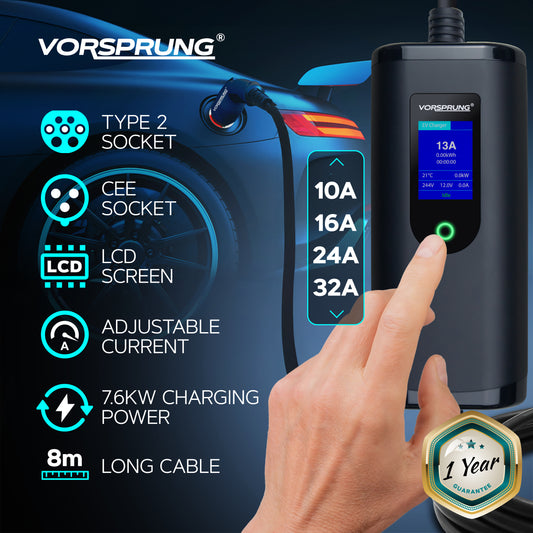
How Electric Car Batteries Work
Share
Electric car batteries are the heart of any electric vehicle. They store the energy that powers the car's motor, and they need to be efficient and reliable in order to provide a long range and a smooth driving experience.
In this blog post, we will explain how electric car batteries work, and we will discuss some of the different types of batteries that are used in electric cars today.
How Do Electric Car Batteries Work?
Electric car batteries work by storing energy in chemical form. When the battery is plugged in, an electric current flows through the battery, causing a chemical reaction that releases electrons. These electrons flow through an external circuit, providing power to the car's motor.
The most common type of battery used in electric cars is the lithium-ion battery. Lithium-ion batteries are very efficient, and they have a high energy density, which means that they can store a lot of energy in a small space.
When a lithium-ion battery is discharged, the lithium ions move from the negative electrode to the positive electrode. When the battery is recharged, the lithium ions move back to the negative electrode.
The number of times that a lithium-ion battery can be recharged before it starts to lose its capacity is called the battery's cycle life. Most lithium-ion batteries have a cycle life of around 1,000 cycles.
Different Types of Electric Car Batteries
There are a number of different types of electric car batteries that are used today. Some of the most common types include:
-
Lithium-ion batteries:
Lithium-ion batteries are the most common type of battery used in electric cars. They are very efficient and have a high energy density.
-
Nickel-metal hydride batteries:
Nickel-metal hydride batteries are less efficient than lithium-ion batteries, but they are more durable. They are also less expensive.
-
Lead-acid batteries:
Lead-acid batteries are the least expensive type of battery, but they are also the least efficient. They are not typically used in electric cars, but they are sometimes used in hybrid cars.
The Future of Electric Car Batteries
The development of electric car batteries is a rapidly evolving field. Researchers are working on developing new types of batteries that are more efficient, have a longer range, and are more affordable.
Some of the most promising new battery technologies include:
-
Solid-state batteries:
Solid-state batteries are a type of lithium-ion battery that uses a solid electrolyte instead of a liquid electrolyte. This makes them more stable and safer than traditional lithium-ion batteries.
-
Graphene batteries:
Graphene batteries are a new type of battery that is made from graphene, a type of carbon material. Graphene batteries are very promising, but they are still in the early stages of development.
Conclusion
Electric car batteries are a critical component of any electric vehicle. They need to be efficient, reliable, and affordable in order to make electric cars a viable alternative to gasoline-powered cars.
The development of electric car batteries is a rapidly evolving field, and there are a number of promising new battery technologies on the horizon. As these technologies continue to develop, electric car batteries will become even more efficient, have a longer range, and be more affordable.
Check out our guide on the Jaguar F-Pace PHEV








